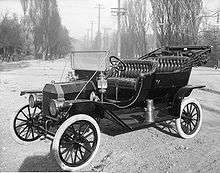Wazir Khan (Rampur)
| Wazir Khan | |
|---|---|
 | |
| Background information | |
| Born | Rampur,Uttar Pradesh |
| Genres | Hindustani Classical Music |
| Occupation(s) | Musician |
Wazir Khan was the chief musician or nayak at the court of Nawab Hamid Ali Khan of Rampur.[1] Without the blessings and patronage of Wazir Khan, it was nearly impossible for a musician to find employment in the durbar.
Early life and background
Wazir Khan was born in the erstwhile Rampur State to Ameer Khan Beenkar[2]
Wazir Khan, was the descendant of Naubat Khan and Saraswati Devi (Tansen's daughter). He was also a musicologist who wrote the Risala Mousibi. He was passionate about photography. He established the Rampur theatre in the building of club ghar at Rampur.[3] Wazir Khan was the student of Daagh in Poetry.[4]
Cuisine
Naubat Khan's family was very fond of food. They were able to develop their own cuisine. It was different from the Dastarkhan of Nawab of Rampur. It was deeply influenced by the Awadhi cuisine. Rice preparations were included in their meals and kebab featured regularly. Rakabdars from the court of Awadh were employed in their kitchens. It was said that if anyone from this family is not fond of Dessert than he is not a Naubat Khani. These preparations were so rich in ingredients that once Nawab Hamid Ali Khan said that if this family was not fond of such good food they could have houses made of gold and silver.
Disciples
Nayak Wazir Khan was the master of Hamid Ali Khan of Rampur,[5]Allauddin Khan,[6] Hafiz Ali Khan,[7]Vishnu Narayan Bhatkhande. Alauddin Khan went on to establish the modern Maihar gharana with disciples like Pandit Ravi Shankar, Nikhil Banerjee, Vasant Rai, Pannalal Ghosh, Bahadur Khan, and Sharan Rani.

Struggle of Alauddin Khan
Wazir Khan lived like a prince. It was not easy for a commoner to approach the musician directly. Alauddin was quite desperate to become his disciple. It is said that one day he stood in front of the Nawab's vehicle and begged to become Wazir Khan' disciple. The Nawab of Rampur was pleased with his perseverance. The Nawab sent the vehicle to fetch Wazir Khan and Alauddin was made the disciple of Wazir Khan. Wazir Khan taught him nothing for two year,s but when he came to know about the hardships Alauddin's wife was facing at home, that's when then he started teaching Alauddin.[8]


Family Tree
-
 I. Samokhan Singh, Maharaja of Kishangarh.Imperial Forces fought with the forces of Akbar.Samokhan Singh was killed in the battle
I. Samokhan Singh, Maharaja of Kishangarh.Imperial Forces fought with the forces of Akbar.Samokhan Singh was killed in the battle
-
 II. Jhanjhan Singh, Yuvraj Sahib of Kishangarh. Present in the battle and was killed.
II. Jhanjhan Singh, Yuvraj Sahib of Kishangarh. Present in the battle and was killed.
-
 III. Misri Singh (Naubat Khan), Yuvraj Sahib of Kishangarh.Put under house arrest.Accepts Islam.Akbar confers title of Khan.First marries Ahmad Khan Mughal's daughter then later Marries Saraswati daughter of Tansen.Jahangir confers the title of Naubat Khan and promotes him to the rank of 500 personal and 200 horse..
III. Misri Singh (Naubat Khan), Yuvraj Sahib of Kishangarh.Put under house arrest.Accepts Islam.Akbar confers title of Khan.First marries Ahmad Khan Mughal's daughter then later Marries Saraswati daughter of Tansen.Jahangir confers the title of Naubat Khan and promotes him to the rank of 500 personal and 200 horse..
- IV. Lal Khan Gunsamundra.Title of Gunsamundra conferred by Shahjahan on 19 November 1637.
- V.Bisram Khan
- VI.Manrang
- VII.Bhupat khan
- IX.Sidhar Khan
- VIII. khushal Khan Gunsamundra.Shahjahan confers the title of Gunsamundra on the death of Lal Khan
- X. Nirmol Shah
- XI.Naimat Khan, Sadarang.(1670–1748). Developed Khayal,Chief musician of Mohammad Shah Rangeela
- XII. Naubat Khan II
- XIII.Feroz Khan,Adarang.
- XIV.Mohammad Ali Khan
- XV. Omrao Khan.
- XVI. Haji Mohammad Ameer Khan Khandara. Went to perform haj with Nawab Kalb Ali Khan
- XVII. Wazir Khan (Rampur). (1851-1926).Chief musician at the court of Nawab Hamid Ali Khan of Rampur
- XIX. Mohammad Nazeer Khan
- XXII. Mohammad Dabir Khan.
- XXIII.Mohammad Shabbir Khan
- XXII. Mohammad Dabir Khan.
- XX. Mohammad Naseer Khan.
- XXI.Mohammad Sagheer Khan.
- XIX. Mohammad Nazeer Khan
- XVIII. Fida Ali Khan.
- XXIV. Mumtaz Ali Khan.
- XXV. Imtiyaz ali khan.
- XXVI.Imdad Ali Khan.
- XVII. Wazir Khan (Rampur). (1851-1926).Chief musician at the court of Nawab Hamid Ali Khan of Rampur
- XVI. Haji Mohammad Ameer Khan Khandara. Went to perform haj with Nawab Kalb Ali Khan
- X. Nirmol Shah
- IV. Lal Khan Gunsamundra.Title of Gunsamundra conferred by Shahjahan on 19 November 1637.
-
-
.
See also
References
- ↑ "The Lost World of Hindustani Music". google.co.in. Retrieved 31 January 2015.
- ↑ "Sitar and Sarod in the 18th and 19th Centuries". google.co.in. Retrieved 31 January 2015.
- ↑ Tareekh-Rohella by Nafees Siddiqui
- ↑ Tareekh-e-Rhela by Nafees Siddiqui
- ↑ Rampur ki Sadarang Parampara by Saryu Kalekar,1984 New Delhi Publications
- ↑ "The Dawn of Indian Music in the West". google.co.in. Retrieved 31 January 2015.
- ↑ "The Life of Music in North India". google.co.in. Retrieved 31 January 2015.
- ↑ "The Garland Encyclopedia of World Music: South Asia : the Indian subcontinent". google.co.in. Retrieved 31 January 2015.
- ↑ Tareekh-e-Rohela by Nafees Siddiqui
- ↑ Islamic Culture Journal by Prof. Abdul Haleem,October 1945, P.P 357-386
- ↑ "Romance of the Raga". google.co.in. Retrieved 31 January 2015.